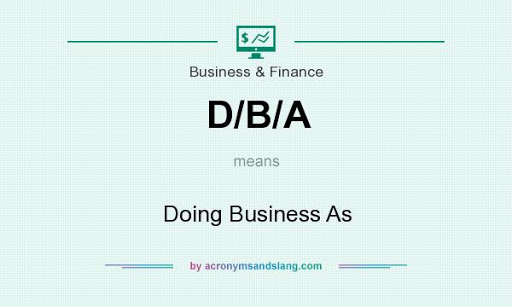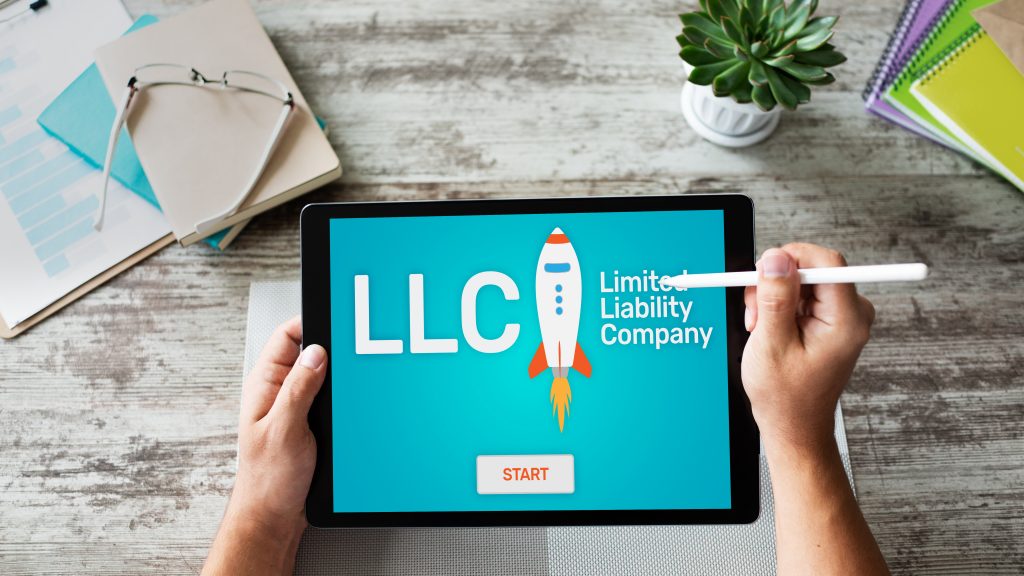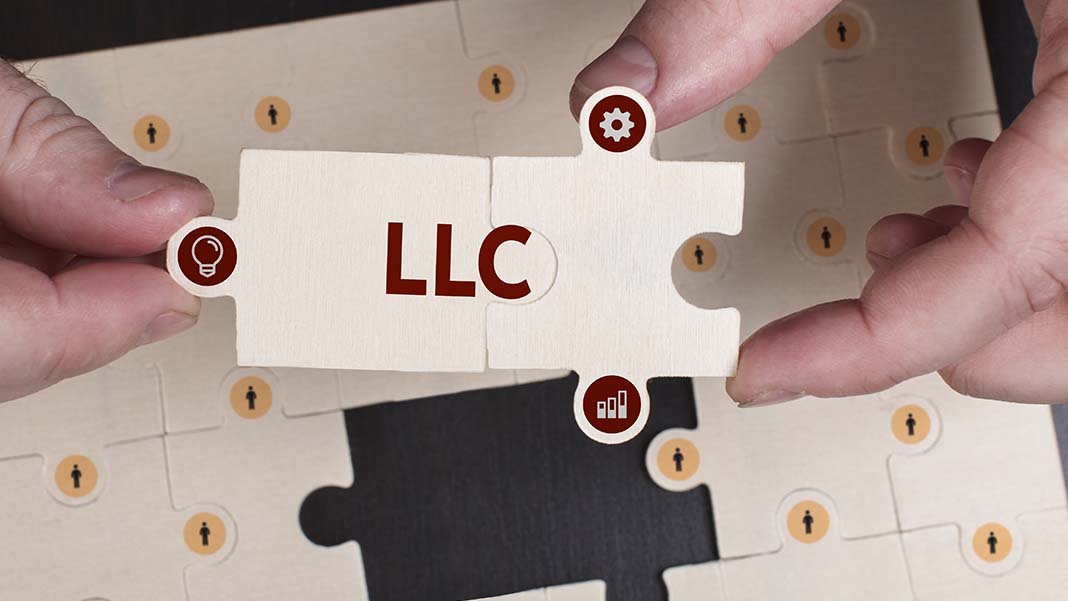DBA vs LLC: Which Legal Protection Option Suits You Best?
The first thing to consider right after being a business owner is deciding to follow a DBA or LLC. Interestingly, there are many similarities between the two options, which makes us confused. On the other hand, the differences between them are also a lot. Which one to choose will depend on your way of conducting business.
We will cover all things you need to know about the DBA and LLC options in today’s post. Also, we will give you a guide to making this critical decision of the business entity structure to maximize your company’s development.
Let’s dive in!
What is a DBA?
You must be wondering what DBA stands for, right?
This is just an acronym for “Doing business as”, which looks at a trading name, fictitious business name, or assumed business name. As its name says, DBA enables a business owner to operate under a brand name that is not similar to its legal name. For instance, Thomas Lee is starting a business and wants to name it as A Corporation; he will approach DBA to do so. Normally, DBAs of almost every country will be filed at the county level where the business is located.

Filing a DBA option means business owners can use a name different from their legal name to manage their business. Let’s ask yourself whether a business named John Smith or Thomas Lee exists or not. That’s right, filing for a fictitious name makes you more creative in naming your brand, and it may help in the growth of a recognizable brand presence since those names are descriptive and memorable business names.
When it comes to the DBA option, it will not form a legal business entity. However, you can still carry your business operations under a different name from your personal name. That also means that a DBA is an official registration of your business name, which can easily be used to run your business.
What’s more, as a business owner applying for a DBA, you won’t need to worry about adjusting your name since you can legally change your name and business with small formalities. Not being tied by limited liability, you can ensure your business assets will not get any protection. So, if the company runs into trouble, you will be obligated to be in charge of any losses and debts.
Additionally, a DBA option will give you a chance to create a business bank account and receive payment in your business’s name. You also don’t need to care about incorporating or forming a Limited Liability Company (LLC). If you are a business owner working with the DBA option, you can surprisingly operate as a sole proprietor or an LLC.
What is an LLC?
An LLC stands for Limited Liability Company, a business operating as a distinct and separate legal entity from its owners. So, in this case, an LCC must be managed by a member or a manager. Members are regarded as the owners of the business, while a manager may not be a member.
Because a limited liability company is a totally separate legal entity, Your personal assets will then be protected from business debts and lawsuits. If your company goes through any troubles, you will not be the only one holding responsibilities for those losses or frauds. On the other hand, all of the members of your company will be accountable. That means you don’t have to worry that your personal assets such as your house, cars, or saving money will be lost in case your LLC has to meet a lawsuit or bankruptcy.

When you have the demand to start an LLC, you will need to create a business under the legal name that you register under, which means business owners must file articles or companies at the state level and choose a Member Operating Agreement. You will experience a stage of performing a name check before deciding a name. This stage is not applied in every nation, but it is necessary to prevent yourself from having the same name as another existing LCC.
In comparison with a DBA, an LLC seems to require more formalities but fewer restrictions than corporations. What’s more, the structure of an LCC consists of more tax flexibility since an LLC has the right to choose to be taxed as a sole proprietor, partnership, or corporation.
DBA vs LLC: What are the similarities?
Before coming to the main differences between DBA and LLC, let’s see how similar they are:
- Both DBA and LLC enable business owners to name their company anything except for their individual legal name.
- Business owners can use both DBA and LCC to do banking under their business’s name to replace their personal name.
DBA vs LLC: What are the differences?

Now, let’s find out their differences:
-
DBA is not a distinct legal entity, while an LLC is completely a legal entity that is designed separately from its owners.
-
If an LLC is a person, a DBA will be an alias for that person.
-
If you want to transfer your company model from DBA to LLC, you will need a lot of paperwork. Whereas, you don’t need to do so when transferring from LLC to DBA
-
A DBA costs you less to register in comparison with an LLC. In case you are a proprietor and not about to pay LCC fees to get legal procedures, you are suggested to choose a DBA. It is because a DBA allows you to promote your business and brand.
-
When applying an LLC model to your business, you will need to use it on every paperwork that asks you for identification, such as tax returns and business permits.
-
Liability protection is the key difference between a DBA and an LLC. Coming to a DBA, a business owner is similar to the business, which means he or she needs to be responsible for all costs and debts on behalf of the business. The things are different when it comes to an LCC, which has limited liability protection. That means the personal assets of business owners are completely separate from the business.
-
An LLC protects your business from failures and bankruptcy, but a DBA doesn’t.
-
A business pursuing an LLC can still have a DBA, but the one following a DBA cannot. Usually, a business may have many DBAs and as a business owner, you don’t need an LLC to have a DBA as a type of business model since you are free to apply for a DBA anytime you want.
-
A DBA will not offer any tax benefits while business owners of an LCC have the right to select a corporate structure such as an S-corporation that receives special tax treatment.
-
A business owner following an LLC has to file an annual report in addition to an annual fee. Whereas, one using a DBA often has just a one-time filling and fee in most countries.
When to choose DBA?
To help you have the best decision of which business structure to apply to your company, we will give you a guide as a quick review of DBA and LLC’s pros and cons.
Advantages of a DBA
Now you know what DBA stands for and some features of it. What about DBA’s benefits. Being not a separate legal entity, it works as an official registration of your business name.

The biggest benefit of DBA that makes many people decide to choose it is that once you start using an assumed name, the same can be incorporated under your DBA. That means you can legally work with your business under an assumed and fictitious name when you are working yours as a BDA.
Also, when using a DBA, you can form individual brands. For example, Band-Aid or Xerox. You can open a bank account under the name for business and financial purposes. What’s more, your vendors and customers also have opportunities to have a professional identity.
Coming to a DBA, only the registered people with it has to repay the loss. Another benefit is that you can also have various businesses under the same owner.
Disadvantages of a DBA

The key cons of a DBA are that business owners will not get liability protection for their assets. It is understandable since a DBA is formed as a fictitious and assumed name. Additionally, here are some of DBA’s disadvantages:
- A DBA name is not protected, which means business owners do not get any exclusive rights for your business name.
- Business owners have to be completely responsible for all the debts their business meets.
- A DBA does not allow any mistakes. Once you make a wrong filing of DBA name, you need to suffer from fraud charges.
- A DBA is not copyright and a trademark.
- Anyone can easily copy it with minor alterations.
When to choose LLC?
Being a new type of business structure that most countries allow, an LLC entity structure provides the limited liability characteristics of a corporation. Let’s review its pros and cons to make an informed decision while finalizing a business structure.
Advantages of an LLC
If you want to protect your business assets from liabilities, then an LLC is an ideal option. It is because you don’t need to be accountable for business debts and judgments against the LLC. To be more specific:
- An LLC is a separate legal entity.
- Business owners and members get personal liability protection for their business assets.
- Business owners get legal protection for their business name.
- The liabilities of a member of an LLC will be confined to the personal investment in the company.
- The business owner can freely and creatively structure your company as you wish since an LLC has amazing managerial and organizational flexibility.
- Business owners are free to choose the way their companies are taxed, which includes having pass-through taxation for its members, such as partnerships.
- An LLC can have any number of members based on what you wish.
- An LLC is easy and simple to manage by any member.
- An LLC does not require the same strict corporate formalities which are applicable to corporations.
- An LLC requires less paperwork.
- You don’t need to consider much when hiring employees, seek funding, or even sell and expand your business.
Disadvantages of an LLC

Here are some of LLC’s main drawbacks:
- LLC’s biggest cons are taxes and limitations.
- Liability and tax treatment of an LLC don’t have uniformity across all countries.
- In case your company runs into any fraud, your liability protection cannot protect you.
- Business owners have to spend more to form an LLC in comparison to a partnership or sole proprietorship.
- You have to pay extra fees and file paperwork when using the LLC structure.
- Business owners may have to pay more for publication requirements and renewal fees.
- Business owners are subject to self-employment tax.
- An LLC has limited liability protection
- The system in which an LLC works is quite complex for some in terms of tax filing.
- If your company looks for the transfer of ownership, using an LLC structure may bring about some restrictions.
- Under an LLC structure, you are not able to make use of modified-cash or cash basis accounting systems.
- An LLC is required to have an accrual basis accounting method.
- Under an LLC, you are not allowed to pay wages on your own.
Conclusion
To sum up, deciding which business structure to use is difficult, especially when they are related to the complexity of financial and legal matters. Having similarities that make business owners confused, a DBA and LLC still have many significant differences.
If your company wants to expand in terms of new products or services, an LLC can benefit from the ease of DBA filing. On the other hand, a DBA enables an LLC to broaden its offerings without forming a new LLC or company for each division.
Each business structure has its own pros and cons. Knowing the key differences between them will make it easier for you to make the final decision of which structure to pursue. Hopefully, this post provides you with useful information that contributes to your success in the future. Leave a comment in the section below to let us know which one you think is better for your business, and share this post if you find it interesting.
Good luck!
New Posts






